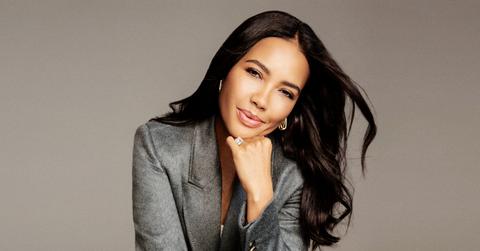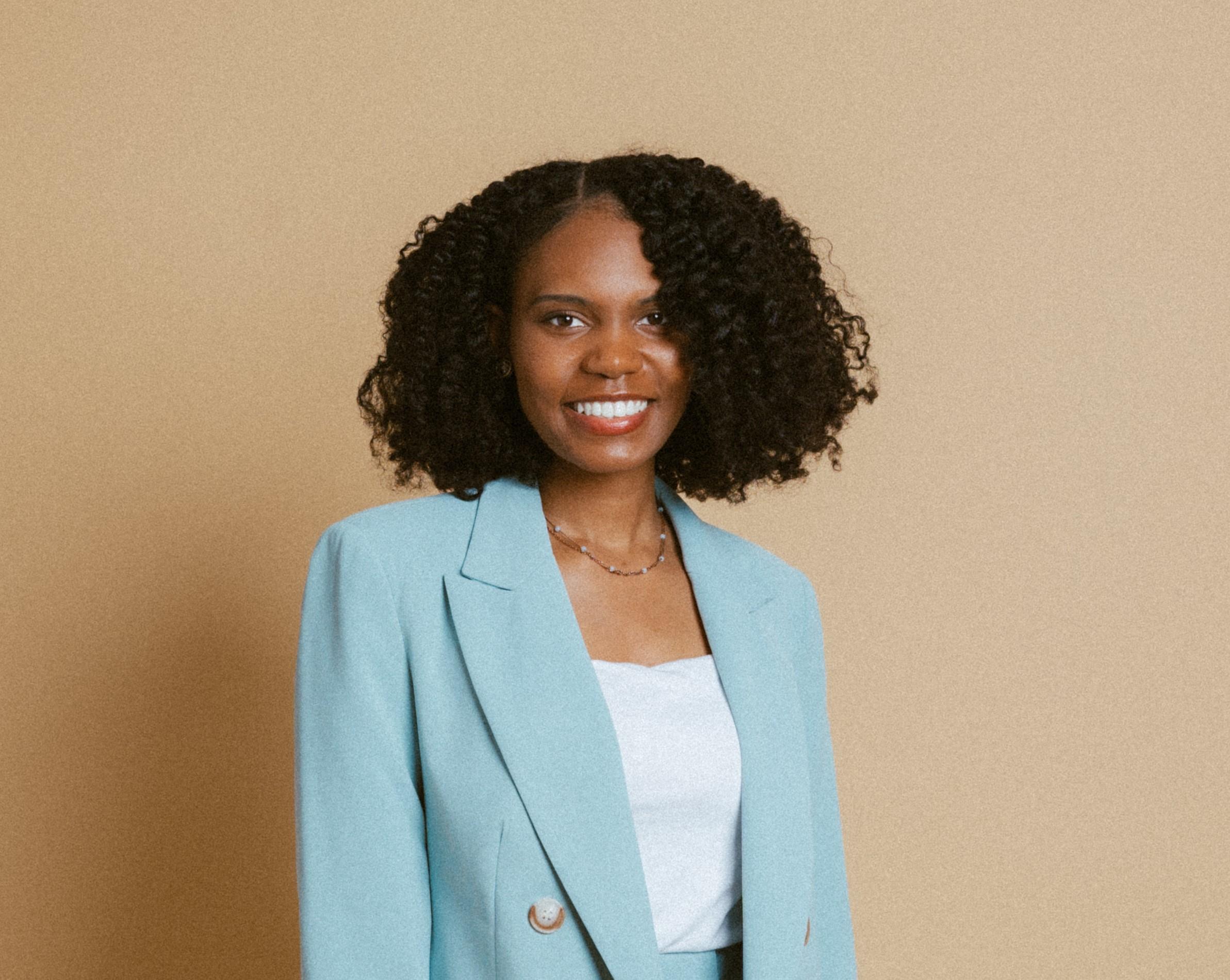Good American CEO Emma Grede Talks The Power Of Curiosity And Her Path To Entrepreneurship

Emma Grede, CEO and co-founder of Good American, is a woman who knows all about going boldly for your dreams. The successful entrepreneur, who is also a founding partner of Skims, co-founder of Safely, and chairwoman of Fifteen Percent Pledge, was raised in East London, where hustling hard for what you want became innate. This attitude has made her the entrepreneur and business woman she is today.
Her Agenda spoke with Emma, after her talk on behalf of Chase Ink at this year’s CultureCon, to discuss the power of curiosity, being bold, and entrepreneurship success.

Her Agenda: What advice would you have for those who are the first in their communities, the first to do it, the first business owner, the first generation?
Emma Grede: I feel really connected to this question, because, honestly, growing up, I didn’t know anybody that ran a business, and so the idea of being an entrepreneur was never something that I was raised with. In my community, you got a job, probably a job that you didn’t like that much. You went to work, you worked for somebody else, and you got your wage, you know, and that was that. I think the main thing is really about, you know, shifting the mindset, because I think there’s so much that we hold internally that can hold us back.
You can’t be what you don’t see. The idea of all of these incredible creatives and founders being in one space, in their community, with businesses from their community, with resources that are brought in, like it really makes so much sense to me. I think just as a take for founders, it’s like, get out of your own head, have a mindset that you can do things that haven’t been done, and that’s the first thing to get over. You know, it’s really the stories that we tell ourselves that are the most important ones.
Her Agenda: How have you used curiosity to your advantage?
Emma Grede: I look at myself as a lifelong learner, right? There’s always going to be something that you don’t know, but curiosity will take you a long way. If you are willing to learn, you’re willing to ask questions, you’re willing to make the phone calls, knock on the doors, ask people that’ll take you a long way. What I find is that people are inherently generous. When you ask questions about someone, most people are happy to talk about themselves. I really do think that is a superpower, like being curious, wanting to understand how things work. It will take you far.
Her Agenda: Your network is your network, essentially. What about introverts? What advice do you have for that individual as their navigator for networking?
Emma Grede: [That’s] difficult for me because I’m not shy, but I do think that there is power in, like, really understanding who you are and figuring out things that are the way that’s going to work for you, right? I think really leaning into, ‘What are the ideal situations for me? I’m better one-on-one. I’m better in small groups, ‘ and then create those situations for yourself.
So, I just think getting people to go out of their comfort zone is one thing, and some people can muster up the courage every now and again, but creating situations that are going to suit you is really equally important. And so I do think, however, that at the end of the day, like you have to grow, you have to do things that are making you uncomfortable constantly. I feel like in my life, the biggest unlocks have come when I’ve done things that maybe I shouldn’t have, that maybe I want to be comfortable doing. And there is a little bit of you needing to, like, break through and change those things,
Her Agenda: What do you hope the future of DEI initiatives will look like?
Emma Grede: We talk about this all the time at the Fifteen Percent Pledge, where I’m chairman, there being a day when you don’t even need something like the Fifteen Percent Pledge. My God, are we far away from that right now. I think that sometimes these labels don’t help us at the end of the day. What we’re trying to do in business is reach as many customers as we can. Create incredible, you know, hopefully generational, defining businesses and do great work. So I think that we’ve gotta stop trying to put labels on things, to find the right way to go about it.
There is no right way. Some DEI initiatives have turned out amazing, some less. So it’s like anything, it takes trial and error. And so I really think that what we have to do is think more about the possibilities and what we’re trying to get to and go, you know, go after those things, as opposed to kind of like whacking a label on what, you know, is essentially, like a really broad term for doing good business and reaching as many customers as we can. Because as far as I’m concerned, I’ve yet to meet a business that doesn’t want more customers. So like, let’s just like, forget the idea of these labels that are actually becoming grossly unhelpful for us.
Her Agenda: What was your lightbulb moment that you said, I have to do what I can to help my own community?
Emma Grede: I started a business out of pure frustration. It’s like I couldn’t find the business that I want. I was bored of being a consultant and creating lots of value for other people. I’m not sure there was any one light bulb moment, but what happens when you become successful is that there is a desire to help other people and to extend the amount that you can do for people in your community. And it becomes almost like a responsibility to me. I see it as something really serious, because, you know, I know how many people helped me on my journey. I know how difficult it was, and so it just almost becomes like a self fulfilling prophecy, like you want to do the things that you’ve experienced, and I think that I’ve been really, really lucky, because I have had a lot of help on the way. And so it’s only natural that you would want to pay that forward.
Her Agenda: What would you say is one piece of advice that you wish someone told you when you just started out?
Emma Grede: To me, the choices that you make in your 20s will define the choices you get to make in your 30s and 40s. And so for me, it was, you know, all out, seven days a week. Do everything. Say no to nothing. Try it really hard and work your absolute butt off, right? That’s what worked for me.
Now, I’m not saying that everyone should do that, but I’m saying my experience is making those sacrifices in my 20s really allowed me to then, you know, take a little break when I had kids in my early 30s, come back and because I’d already got to a certain point. So I think you have to think really carefully about the choices that you make early in your life, because they have a lot of, you know, ramifications down the line. In your 20s, when perhaps you don’t have the same sort of responsibility level, you’re a little bit more free and easy to do the hard things.






